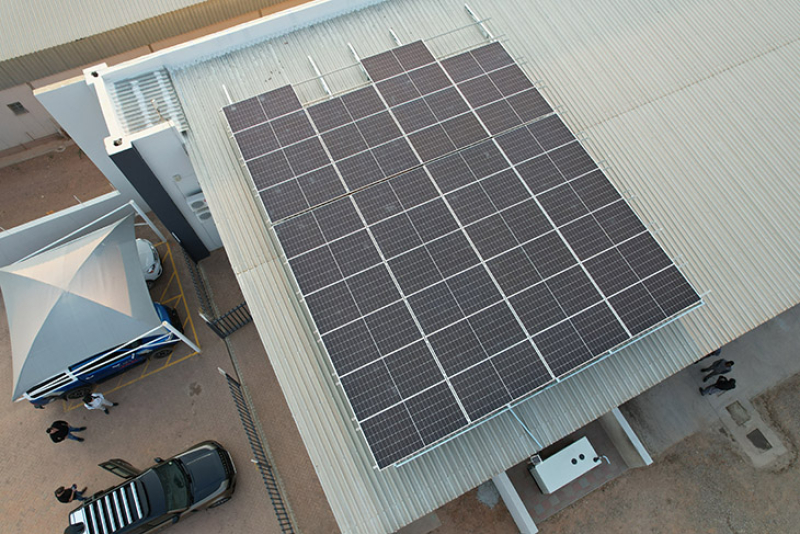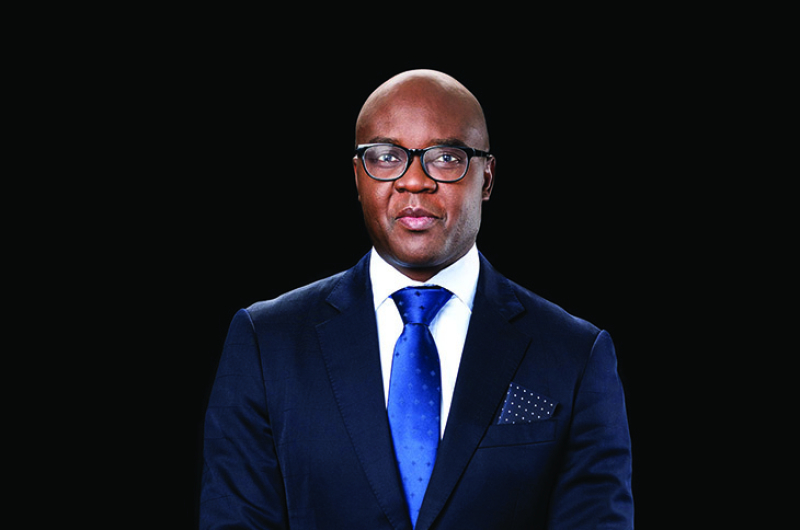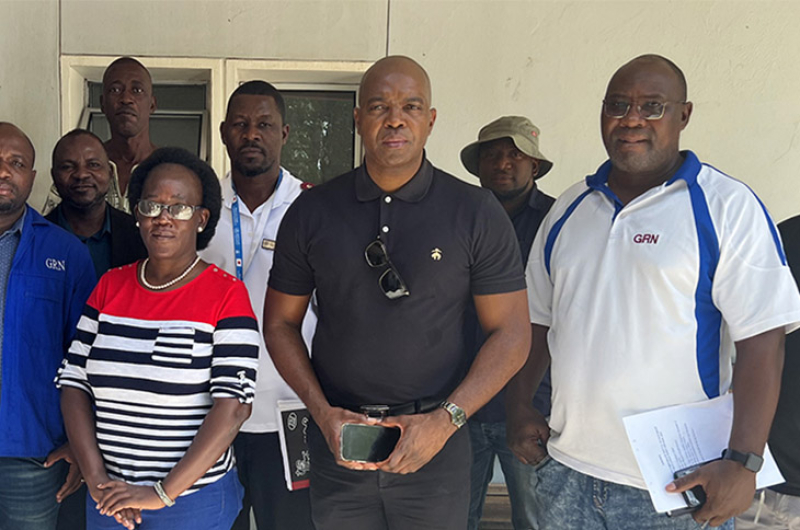 Call 061 290 8000
Call 061 290 8000 Click to mail us
Click to mail us FAQs
FAQs

DBN
Development Bank of Namibia (DBN) Head of Marketing, Jerome Mutumba, has announced three new enterprises that have used Development Bank finance to strengthen their enterprises with solar energy. They include a truck and tractor repair plant in Gobabis, a charcoal manufacturer, also near Gobabis, and a large retail outlet in Okahandja.
Says Mutumba, although DBN is associated with photovoltaic parks, larger solar electricity generators that feed into the grid, the Bank also finances solar power installations for enterprises.
Mutumba points out that the spread of locations shows that solar installations can benefit businesses across Namibia.
In some cases, he says, a new connection to the grid may be prohibitively expensive, if the connection and the grid consumption costs are considered. In this case, the cost of renewable becomes economical in the medium to long term, with the initial cost written of against future savings and gains.
He goes on to say that in the face of potential shortages in the Southern African Power Pool, and Namibia’s reliance on electricity imports, independent power generation for own consumption becomes an attractive form of security for business continuity whether the business is grid reliant or not.
The trend towards own generation by the Namibian private sector, through solar power, Mutumba observes, has become more prevalent, with widely reported capacity installed by large retail facilities and fuel outlets. This is also in line with new approaches in environmental and social governance (ESG).
In addition, own generation by businesses alleviates calls on the national grid, making electricity available for household consumption and enterprises that are not able to establish their own solar generation.
Developmentally, the net impact, Mutumba points out is beneficial, with greater enterprise security directly linked to preservation of employment.
The next frontier in the field of solar generation, he adds, is installation in affordable housing developments, taking the form of solar water heating and / or generation for household use. Although the initial cost will be passed on to the owner of the new home, the increment in cost has the medium to long-term effect of making home ownership more affordable on a monthly basis.
On the topic of how the Bank can finance solar generation, Mutumba says that the Bank provides finance under multiple sectoral facilities, including tourism, retail and wholesale, manufacturing and transport and logistics. It can also be financed as an addition to affordable housing developments.
He also says that the Bank’s KfW-supported recovery loan may also be a source of finance. The loan, which has a duration of 32 months or less, has a fixed interest rate of 5,925% but no interest is levied for the first 12 months of the loan. Although the loan has a short duration, enterprises that have the reserves and are in a position to repay faster, should consider the opportunity.
If businesses benefit from solar, we have a duty to support it and add it to our operational sustainability, Mutumba concludes.
Business Recovery Loans have been further subsidized in response to calls for access to affordable credit and will now include a 12-month interest-free period following disbursement of loans.
These loans are supported by KfW, the German Development Bank, and are distinct from the Bank of Namibia SME Economic Recovery Loan Scheme. DBN is expected to make a statement on its participation in the Bank of Namibia SME Economic Recovery Loan Scheme in the near future.
The Business Recovery Loans currently have a term of up to 32-months and a fixed interest rate of 5.925%. Effectively, this means that Recovery Loan borrowers will only pay interest for 20 months. The 12-month portion of interest will NOT be recapitalized for payment in the final 20-month period of the loan.
The interest subsidy does not subsidize the capital amount of loans, so borrowers will be required to pay the capital amount over 32 months, unless a grace period is granted by DBN, depending on merit of the project financed.
The Bank launched its Business Recovery Loans Facility in 2022 to assist eligible non-agricultural businesses to overcome financial challenges caused by adverse macro-economic conditions over the past years. It succeeds the Covid-19 facility that was launched in 2021.
The recovery facility is enabled by German Development Cooperation and its financial cooperation entity KfW. The facility is part of a series of measures initiated by the Ministry of Finance to help businesses overcome the financial challenges caused by the prevailing adverse macro-economic conditions.
Martin Inkumbi, DBN CEO, says on launch of the Business Recovery Loans in mid-2022, the loans were intended for acquisition of plant and equipment, as well as working capital and / or other short-term finances to strengthen enterprises. He also points to diversification and expansion so that businesses can become more resilient to future economic shocks. Finally, he says that the business and consumer environments have evolved and adapted during Covid-19, and the Business Recovery Loans can be used to develop and launch sustainable, innovative new products and services.
Inkumbi says that the shorter duration of the loan places the onus on existing enterprises to select uses that can be quickly implemented with a rapid, positive impact on business outcomes and revenues.
Inkumbi stresses that the loan will not apply to start-ups. This is a loan specifically geared to boost existing enterprises that have been affected by the difficult economic environment. Start-ups, he concludes, should apply for normal SME finance or larger amounts of finance from DBN’s Investment Department.
Find out more about the KfW-backed Business Recovery loans, here...
Development Bank of Namibia (DBN) Head of Marketing and Corporate Communication, Jerome Mutumba, has announced a donation of N$1 million to strengthen maternity facilities with construction of a maternity ward at Rupara Health Centre in Kavango West Region.
The region currently does not have a maternity ward. One room is allocated to expectant mothers, and when that room is filled, mothers give birth in the general ward, or are referred to Kavango East. There is an average of 22 births at Rupara Health Centre, monthly.
Speaking about the donation, Mutumba described it as an opportunity to materially give to the future through better health for mothers and their infants, He explained that the combination of pre-natal and post-natal care would have the effect of reducing infant mortality.
He also mentioned that the facility would have an impact on the mental wellbeing of mothers. Firstly, he said, the additional facilities would reduce the stress of giving birth in the general ward. Secondly, he said, there would be a reduction in referrals to Kavango East, so mothers would be able to have the support of their families.
Mutumba went on to challenge the private sector and parastatals to participate in projects with a high degree of development impact. The well of need is deep, he said, but by joining hands in the spirit of Harambee, all can make a material difference.
During the same set of regional visits, Mutumba gave a motivational speech to the learners of Oshikunde Combined School in the Omaheke Region, and pledged an award of N$20,000 to the best performing learner in Grade 12.





